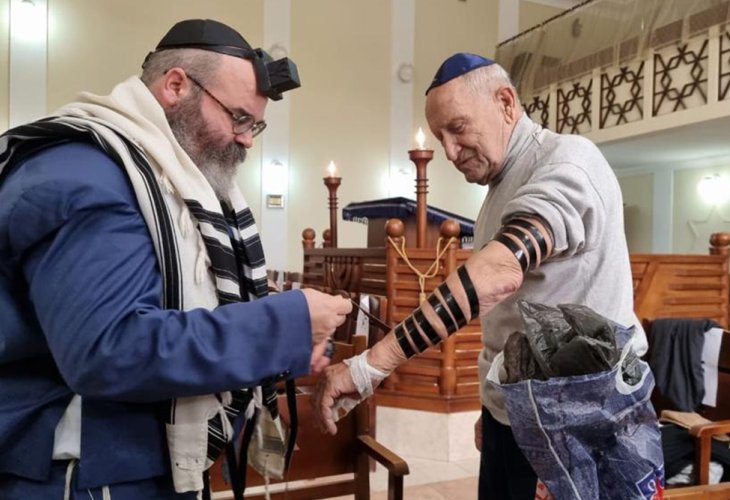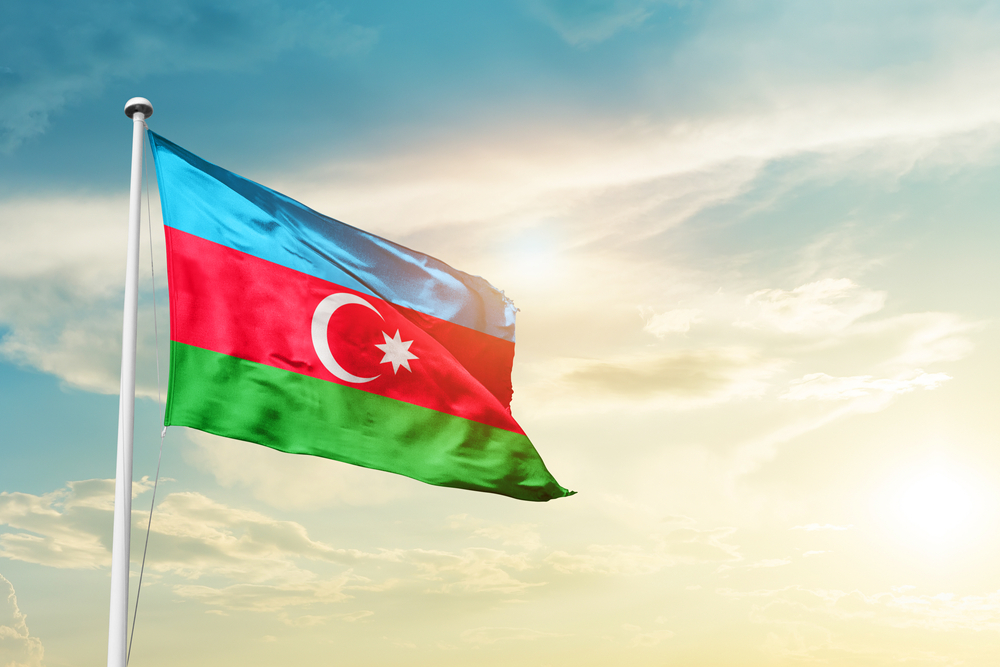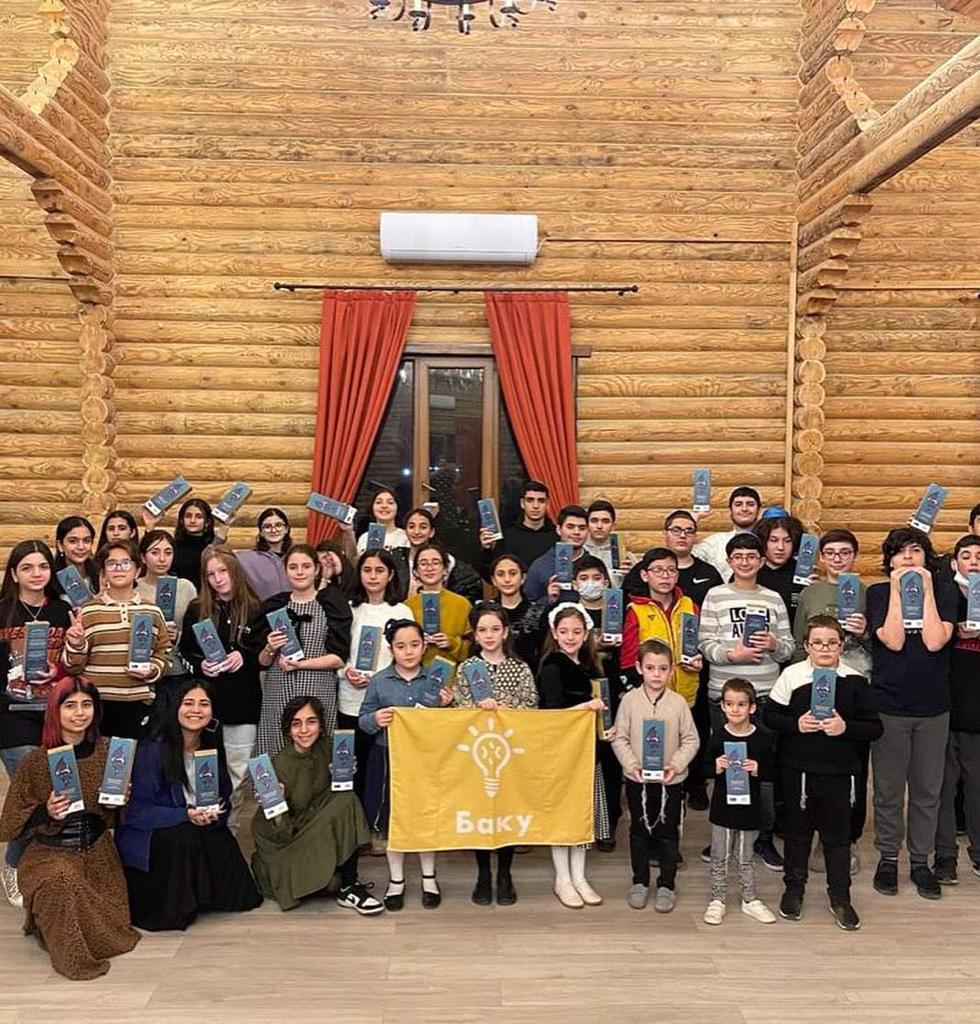Being a Rabbi in a Muslim Country: 'We Live Together with Little Separation, and That's Exactly the Problem'
In light of Azerbaijan's announcement about opening its new embassy in Israel, Rabbi Shneur Segal, the rabbi of Baku, shares insights about life in a predominantly Shia country, the challenges, and stories of resilience.

When last month the state of Azerbaijan announced that it was opening an embassy in Israel, some were surprised. After all, this would be the first embassy in Israel from a country with a Shia majority. But there was someone who wasn't surprised at all—Rabbi Shneur Segal, who has served as the rabbi of Baku, the capital city of Azerbaijan, for the past 13 years. For him, it was quite a natural process, even necessary.
"When speaking of an Islamic state, it always conjures up associations of hostility towards Jews," he begins to say. "The truth is, when I was first offered the mission in Baku, like an average Israeli, I felt an immediate aversion, as if it was a dangerous place, perhaps even frightening to live in. But they told me: 'Go see the place, and you'll understand yourself.'
"When I arrived in Baku, I immediately understood what they meant, because it's a place where antisemitism has never been heard of. To Israeli eyes, this might seem illogical, but this is the reality. Jews have lived in Baku for hundreds of years, and the relationship between them and the Arab residents is wonderful, and everything goes smoothly. I regularly walk around here with a hat and suit, distinctly Jewish attire, but it doesn't bother anyone, and I've never heard a word about it. Of course, there are many advantages to this, but as emissaries in the city, we also encounter the less positive side of the matter—due to the great proximity between Jewish and Arab residents, the level of assimilation here is one of the most severe in the world."
 (Photo: Shutterstock)
(Photo: Shutterstock)Embracing Everyone
How many Jews currently live in Azerbaijan?
"According to our estimates, there are 20-25 thousand Jews living in all of Azerbaijan, about 90% of whom are in Baku. In practice, about 3000 people participate in our activities. When I say activities, I naturally mean prayers in synagogues on weekdays, Shabbat, and holidays, communal meals we hold on holidays, and kosher activities for the whole family. We have a Jewish school in Baku with about 230 students and also a Sunday school for students whose parents choose not to send them to Jewish education but want them to acquire concepts and learn about their Judaism. Over the years, there has been significant rapprochement to our delight, but there is still a great lack of knowledge among some Jews in the place, as after all, these are Jews who grew up in a Soviet state. Although synagogues were open even during Soviet times, life was different. We try to complete and fill in this knowledge.
"Additionally, as I mentioned, the assimilation here is very high. Although among the mountain community the situation is better, in the Ashkenazi community this is a difficult phenomenon that has accompanied it for hundreds of years. Not a day goes by that we don't discover another Jewish family in the city who didn't even know about their Jewishness, as the family is mixed and for several generations women have married non-Jews, but since in Judaism the maternal line is followed, the moment there is a continuity of Jewish women, the children are completely Jewish.

"The issue is very painful, as many of the Jewish girls feel 'what's wrong with marrying someone who isn't Jewish? After all, I am Jewish and my kids will be Jewish anyway. We've lived with Arabs all our lives, why create separation?' It's very difficult to explain this issue, we work hard on it, and believe this is our role, and the reason we came here.
"We operate a lot and try to bring the light of Judaism to all the Jewish residents in the place. We have, thank God, many successful cases, but there are also stories that end less positively. But we never try to push for specific results. Our role is to embrace the Jewish community as much as possible, give them *Yiddishkeit* and believe that the Jewish soul is always there, even if a person struggles with their trials and their inclination overcomes them. We never give up, we pray that we will see the fruits, and even if we don't, it's clear to us that we didn't work in vain because everything little a Jew did—put on tefillin, learned Torah, or kept Shabbat, does not go to waste but remains existing. The Torah and Judaism are eternal and do not dissipate in any situation."
Good and Warm Relations
Rabbi Segal notes in satisfaction that due to the large number of Jews in Azerbaijan, seven Jewish emissary families live in the country, five of which are in Baku. "In recent years, there is a new couple who started their mission here," he says, "it is a couple where the woman grew up as part of the community in Baku and married a man from the Caucasus who strengthened significantly, learned ritual slaughter and circumcision, and in recent years became the community's mohel and shochet.
Speaking of slaughter, Rabbi Segal clarifies that from this perspective, the residents are set, and kosher meat and poultry can be obtained in Baku. "Dairy products are more problematic," he notes, "they are very hard to obtain here, usually we just don't use them, and sometimes we import from Israel. There's an abundance of fish, vegetables, and fruits, so we're not hungry. The big challenge is snacks and sweets, which can't be obtained in strict kosher, and our children have to learn to live without them."
And what about the economic situation of Baku residents?
"The state of Azerbaijan is rich in oil and considered stable, but the standard of living of the private population is low compared to Israel, and the average salary does not reach Israeli salaries. Jews are part of the local population and move around the same scale—some of them have a higher economic status and some lower."
What about education, where do your private children study?
"Our children study from the second grade in the Chabad Online School, which is a distant learning school. We don't send them to the local school because it's not a cheder, but a framework that operates under the local Ministry of Education. When they reach yeshiva age, they go to study in Israel."
Do tourists ever come to you?
"Certainly, we meet quite a few Jewish tourists who come to the area, they often stay with us, buy kosher food, pray, and also receive a lot of logistical support from us. I want to emphasize that Israel's relations with Azerbaijan have always been good. Israeli tourists have always been welcomed here, there is an Israeli embassy in Azerbaijan, and from our perspective, the opening of the embassy in Israel was natural and needed.
"By the way, after the announcement of the embassy opening, I corresponded with one of the senior figures in Azerbaijan, and we both wondered where the relationship between Israel and Azerbaijan could go even further, and we didn't really know how to answer, because the relations are very warm and good, and whenever we had a need, there was a listening ear in the government for every problem. Of course, now there is another step forward, and there is no doubt that there is great joy here that an embassy is being opened in Israel. It shows the attitude towards Israel also on a diplomatic level. There is here a type of statement in a transparent and official way."

